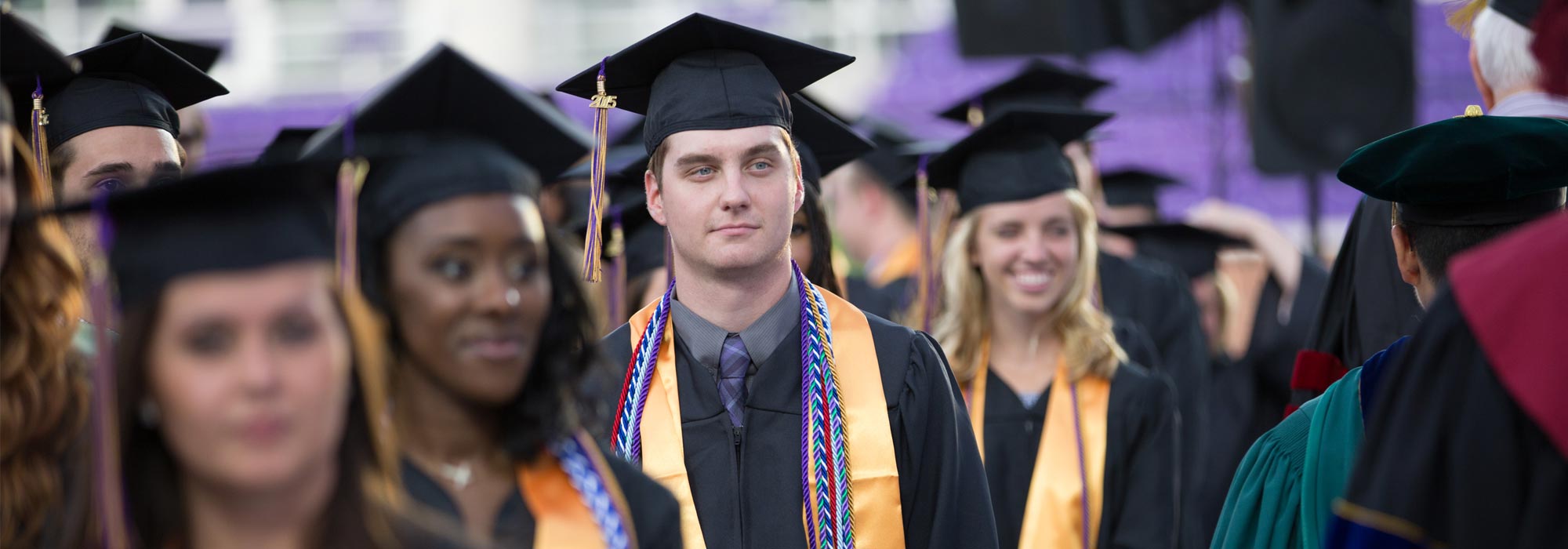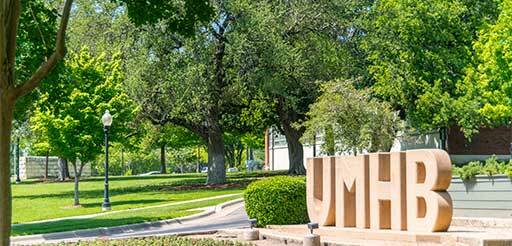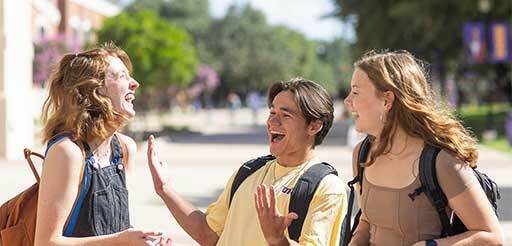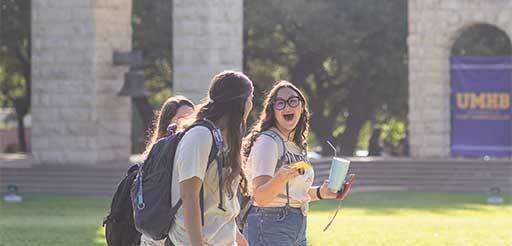Classroom Expectations and Ethics
Christian Citizenship
UMHB accepts students of all faiths or persuasions, but attendance at the University should be understood by all as a statement of agreement to live in accordance with the regulations governing the campus community. The spirit of Christian behavior is demonstrated in speech, dress, attitudes, integrity, honesty in academic and personal activities, and respect for the property and rights of others as well as respect for the officials of the University. This applies both to on-campus and off-campus life.
Student Responsibility
All students are responsible for knowledge of and adherence to regulations governing admissions, advising, registration, drop/add, withdrawal, and financial settlement. Students are also expected to be familiar with the specific academic and attendance requirements of the degree/certification that they plan to pursue.
Class Attendance
The University of Mary Hardin-Baylor expects regular and punctual attendance in class. Punctuality is deemed to be as important as attendance, because tardiness is disruptive and distracting to both faculty and fellow students and is undesirable for personal and professional activities. Students coming to class late are responsible for checking with the instructor to make sure they were not marked absent. Because attendance is expected, students are responsible for all course work and assignments.
An absence due to participation in certain activities may be designated as a University Excused Absence. If an absence is designated as a University Excused Absence, then faculty will provide reasonable opportunity for students to make up work that is missed. If it is not feasible for the student to make up work, some allowance may be made in order that the student not be overly penalized. The student must inform the instructor of University Excused Absences in advance of that absence. This will allow a reasonable opportunity for the student to make up work missed. Depending on the policy of the individual instructor, University Excused Absences may count toward the total number of absences allowed in a course.
All absences are counted from the first class session of the term. It is the student’s responsibility to approach the instructor regarding making up the work for any missed classes. Individual colleges and individual faculty may have more specific attendance requirements cited in their syllabi. Students are expected to be aware of and abide by the attendance policy that pertains to each class.
Academic Decorum
The learning environment involves an exchange of ideas and an exploration of concepts between faculty and students and a certain level of decorum facilitates that learning environment. In order to create an effective learning environment, students pledge to:
- Come to class prepared. This includes careful reading of assignments, being prepared to participate in discussions and completing any assignments that are due.
- Be attentive and responsive in class
- Respect fellow students’ opinions and ideas
- Contribute to the class by making topic-specific comments as appropriate
- Offer critiques and alternative ideas in a non-condescending manner
- Provide a fair share of work to group projects and team activities
Examples of disruptive behaviors to avoid include:
- Talking, sleeping, or otherwise distracting members of the class
- Using electronic devices in class without permission or in a manner that disrupts the class or other students
- Exhibiting argumentative or attention-seeking behavior
- Failing to show respect or act with civility
Academic Integrity
As an institution committed to the Christian values of honesty and integrity, the University of Mary Hardin-Baylor expects all members of the learning community to commit themselves to high standards of academic integrity. Academic integrity is vital not only as we live out our Christian calling but also for our students’ success in their future vocations. To that end, students are expected to take responsibility for all the work they produce at the University and to ensure that it meets the University’s standards for academic integrity.
- Written work should reflect the student’s own ideas and any use of others’ words, ideas, or patterns of thought should be appropriately quoted and/or cited.
- Plagiarism in any form is expressly prohibited.
- Failure to comply with the university’s copyright policy is expressly prohibited.
- Students are responsible for understanding the instructor’s rules governing any particular piece of academic work and abiding by those rules. Any questions about persons or materials not authorized to be used on any particular assignment should be clarified before accessing those persons or materials.
- Submitting academic work produced with unauthorized assistance or materials is expressly prohibited. This may include assistance from fellow students, other faculty members, textbooks, notes, online resources, or commercial sources such as professional paper writers that are available for hire, or any other material that has not been authorized by the instructor for use.
- Papers (in whole or in part) or other work prepared for one course should not be submitted to meet the requirements of another course without express permission from the instructor.
- Students assigned to collaborate in group projects should contribute their fair share of the work necessary to complete the project or notify the instructor of their failure to contribute.
- Academic integrity requires that students be truthful in all their academic work.
- Falsifying research data, lab reports, or other academic work product is expressly prohibited.
- Students should refrain from disclosing the specific contents of any test, exam, or other required assignments to a student who will, or may, later be required to complete that same assignment.
- Students should refrain from soliciting or otherwise acquiring specific information about the contents of any test, exam, or other assignments that will, or may, be administered in the future.
- As members of a learning community, we all have a responsibility to assure that all members have equal access to learning materials.
- Keeping, taking, intentionally misplacing or damaging library books, online files, laboratory equipment, or other academic resources in order to obtain an academic advantage over another student is expressly prohibited.
- Students taking online courses should be diligent to maintain the same standards of academic integrity for work performed off campus as for work performed in the classroom, the library, or other campus facilities. Online students should maintain strict privacy of their login identity and passwords.
- The University’s standards of academic integrity go beyond the classroom to encompass all aspects of a student’s academic life.
- Falsifying an academic record, a degree plan, a prerequisite waiver, or any other official document is expressly prohibited.
- Students should not mislead any official of the University in order to secure a required form or otherwise obtain an academic advantage.
- The University is a learning community in which participants are responsible for one another.
- Assisting a student in any violation of the academic integrity standards is expressly prohibited. For example, providing or receiving unauthorized assistance, including (but not limited to) taking another student’s exam, providing answers to another student during a test, or contributing to another student’s written work without permission.
- In furtherance of the mutual responsibility students share for academic integrity, students are expected to respond fully and candidly to any request from a University official for assistance in any investigation of violations of the University’s standards.
Failure to respond candidly and fully to such a request is a violation of the university’s standards.
Academic Appeal
Grounds for Appeal
Students may appeal any academic decision believed to be arbitrary, capricious, or unfair. A student’s mere dissatisfaction with a grade or decision is not grounds for an appeal. For an appeal to have merit, there must be some evidence that the student has been treated inappropriately with regard to the administration of the university’s policies and procedures.
Procedure
Appeals will be considered only if they are from students enrolled at UMHB upon initiation of the first appeal. Furthermore, appeals must be initiated within 30 days calendar of the date of the decision or action being appealed. The student should send the appeal by campus email. A written copy delivered to the recipient is also strongly encouraged.
The student should first appeal the decision in writing to the person who made it by stating the appropriate rationale for reconsideration, the requested remedy, and the student’s contact information. If the matter is not resolved, the student may then appeal that decision in writing to the next highest authority.
In matters related to academic coursework, the line of appeal is first, the faculty member; second, the associate dean/department chair (as applicable to the College); third, the dean of the college; and finally, the Provost’s Office.
Each person to whom an appeal is made will normally respond to the student in writing within five (5) business days of receipt of the appeal. The student will have ten (10) calendar days from the date of that response to appeal to the next level. Extensions may be granted by the Provost’s Office in cases where the issue requires more extensive review and/or other extenuating circumstances.
The dean and/or Provost’s Office may request a meeting with the student and other parties involved.
Conversations and/or correspondence with anyone other than students and UMHB faculty/ staff will not be considered in responses to appeals until and unless the issue has been appealed to the Provost’s Office.
Additional Information
This is not an exhaustive list and the university reserves the right to interpret and reasonably apply academic standards to individual situations.
Students who violate these standards shall be subject to appropriate discipline as determined by the instructor of the relevant class, and/or in some cases, by the administration of the University. Penalties for violating the University’s academic integrity standards can range from receiving a lower grade (including zero) on an assignment to being expelled from the University.
For more information regarding academic integrity at UMHB, contact the Provost’s Office.
Contact Information
Location: Sanderford Administrative Complex
Address: 900 College Street, Box 8425 • Belton, TX 76513
registrar@umhb.edu • Phone: (254) 295-4510
Page last updated June 17, 2019



